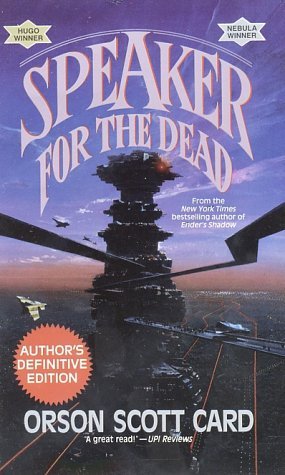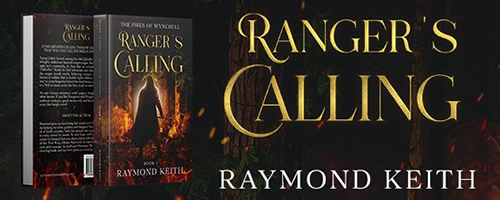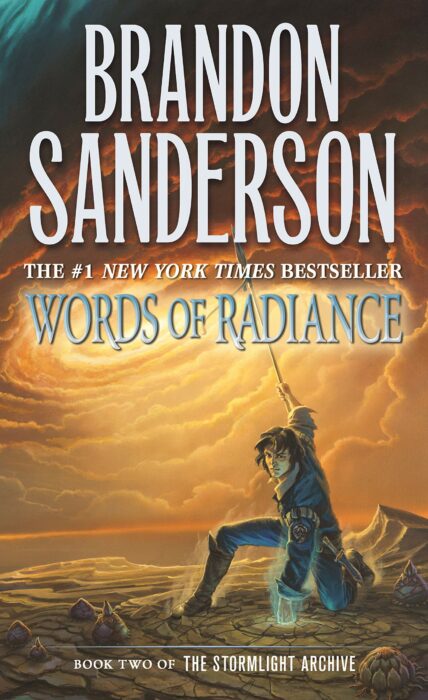How Reading Epic Fantasy Helps Me Be Brave
Sometimes in Christian circles, people hold entertainment at arm’s length.
For instance, famed pastor and theologian John Piper has sometimes cast suspicion on the value of entertainment. In one podcast response to a listener question, he says, “Movies are not well designed to [love God]. In fact, most of them are well designed to hinder that.” In another article, he writes that television “takes time. I have so many things I want to accomplish in this one short life. Don’t waste your life is not a catchphrase for me; it’s a cliff I walk beside every day with trembling.”
In fairness, Piper also argues entertainment is valuable if it becomes “an avenue of knowing God better, enjoying him more, and being a greater blessing to other people.” But in practice, for Piper, entertainment rarely seems to hit that standard.
Piper usually deals with television, but one could pose similar challenges to epic fantasy. In academic or theological circles, I’ve read several individuals who offer similar critiques of genre fiction. For them, nonfiction is useful, and literary classics have their value. But why hold any regard for popular fantasy?
I strongly respect John Piper and others who scrutinize fantasy entertainment. But I would argue that we miss an essential truth if we view popular or fantasy entertainment with such suspicion. Yes, fantasy fiction may seem useless in certain circles, but it holds tremendous ability to impact and transform readers for good.
What fantasy reveals about courage
Among fantasy’s many themes, I’ve found the greatest impact in the theme of courage. The ancient Greek philosopher Aristotle once argued that we primarily grow in virtue by seeking to imitate other virtuous individuals. Christians may have qualms about how far Aristotle pushes this idea. But the concept that we can grow through emulating praiseworthy individuals is not foreign to the Scripture. Biblical authors call us to emulate several individuals, such as in the “hall of faith” in Hebrews 11. And, of course, true virtue comes from imitating the person of Christ. Aristotle’s model is one we can actually embrace as Christians.
Epic fantasy does particularly well giving us examples of true virtue.
I’ll forever remember that moment in Brandon Sanderson’s Words of Radiance when the protagonist, Kaladin, finds himself standing as the last guard between a group of assassins and a king whom Kaladin blames for ruining his life. As the assassins approach Kaladin, they encourage him to step away. He isn’t in the right physical shape to take on them all. And what has this king ever done for him? For a lot of the story, Kaladin has wrestled with the injustices done to him. But when a battered and bleeding Kaladin refuses to back down, proclaiming that “I will protect even those I hate so long as it is right . . .”? Chills run down my spine at that beautiful picture of true courage.
 I also think of Ender’s example in Orson Scott Card’s Speaker for the Dead, when Ender stands up for an alien race whom the rest of humanity has decided to destroy by genocide. Even in the face of overwhelming power and even death, Ender exhibits gritty commitment to virtue.
I also think of Ender’s example in Orson Scott Card’s Speaker for the Dead, when Ender stands up for an alien race whom the rest of humanity has decided to destroy by genocide. Even in the face of overwhelming power and even death, Ender exhibits gritty commitment to virtue.
Of course, we see this commitment to stand up for righteousness, even when victory seems doubtful, all over superhero stories, particularly in the character of Captain America. We see this in his famous “No, you move” speech in the original Civil War graphic novel series. We also see his courage in that beautiful shot in Avengers Endgame where he stands alone against the host of Thanos’s army.
Throughout epic fantasy we find moving portraits of courageous commitments to do the right thing no matter the costs. We lose part of our humanity when we don’t have these images to emulate.
How epic fantasy impacted my life
Some people may still question whether such stories are really necessary. “Do I really need people like Captain America, Ender, or Kaladin modeling courage for me to convince me to become courageous?”
Of course not. But stories aren’t so much about changing minds. Stories impact hearts. With this particular virtue, we don’t fail to show consistent courage because we don’t know if we should. Instead we fail to show courage in precarious circumstances because we lack the will. Here these fictional examples can help us.
Some time ago, I found myself called to a meeting with an employer for a difficult conversation, after I had decided to expose some illegal acts. Outside of intellectual debates, I really am not by nature a confrontational person. So the prospect of this conversation wracked my nerves. This person could fire me over my decision.
But I can still remember that as I walked to that meeting, I consciously tried to put myself in the mindset of the courageous heroes I admired. I don’t recall imagining specific characters. Instead, the ideals these fantasy characters represent had formed my mental image of courage. They helped give me the boldness to stand fast and resist when my employer (at that time) was pressuring me to promise I wouldn’t blow the whistle on such acts in the future.
That mental picture of courage got me through that grueling hour-long meeting. I hadn’t gained that vision from reading nonfiction books about courage or literary classics. Rather, I found that image formed in me by a few biographies and many more fantastical stories that inspired me and gave me strength to stand firm.
The particular virtue of epic fantasy
Each great genres of fiction has its own strength and appeal. But fantastical genres have a unique ability to show the grandeur of normal choices.
In the real world, standing up for good causes doesn’t always feel triumphant. When I left that meeting with my employer, I felt utterly drained. At times, courage can feel banal, meaningless, or exhausting. Real life doesn’t feel like fiction.
But epic fantasy, with its sweeping narratives and world-threatening stakes, reminds us of the true grandeur of courage. Fantasy reminds us that when we stand up for those weaker than us, we’re like Kaladin standing up against the assassins. When we hold onto truth despite overwhelming opposition, we’re like Captain America standing against the hordes of Chitauri. We might not always feel brave in the moment. These stories, however, remind us that anyone watching from outside might see this bravery for what it truly is.
That’s why, despite objections that fantasy isn’t as artistic as literary fiction or as intellectual as nonfiction, I hold onto the genre’s value. Fantasy has tremendous ability to show us moral examples, who shape our hearts so we can love what we ought to love. For this fantasy reader, that’s made a difference in my life.


































Well, there is that quote from C.S. Lewis – of course he’d have one – to the effect that children [people] would face evil & villains in their lives; they should at least have heroic examples of honorable knights and others fighting for the good. I paraphrased it wildly but probably most of you reading this recognized it.
And of course, Lewis not only wrote this but wrote stories that did provide such heroic examples: Peter and Edmund Pevensey, Ransom from the science fiction trilogy, even Reepicheep (a very small valiant one).
Yep–Lewis did a great job with practicing this in his own stories!
Ooo, I forgot to mention Lucy Pevensey, Jill Pole, and many others. Should we count Perelandra’s Green Lady??
Well said, Josiah!
Thanks, Bethany!
I completely agree. Dealing with chronic illness for me would be a different story without Frodo the Ring bearer, Janner the Throne Warden, and King Crispin from Mistmantle. It’s tragic how much Christians undervalue fantastical stories, but Christian culture seems to be shifting to include these books and movies more. I find that very exciting, because I’m confident they’ll make us braver and give us a better understanding of Scripture.
I love how those characters have been able to help inspire you as well!
I must admit that I’ve never thought about epic fantasy this way before. You have crafted your argument very well, Josiah.
Epic fantasy is a category I read a lot and even my pastor uses movies or books to illustrate some of his points.
For instance, I can’t remember the name of the Avengers movie, but the Hulk comes face-to-face with Loki, who says (and I’m paraphrasing), “you can’t hurt me. I’m a god.”
Then the Hulk grabs Loki, slams him against the floor several times like a child throwing a temper tantrum, and says, “puny god.”
My pastor then said that particular scene was worth watching the whole movie for.
As for myself, when I think of courage, I think of Han Solo even though he rushed at storm troopers by himself in a New Hope.
Luke Skywalker: determination and focus needed to become a Jedi Knight.
Princess Leia: a lot of spirit (remember that comment by Han Solo to Luke in the Falcon’s cockpit) and gutsy. She’s no damsel in distress. I love how she took charge in blasting a hole and leading the way down to the garbage compactor.
And I could go on.
Thank you, Josiah, for your article. I’ll decide sometime today which book of Terri Brooks that I want to read next.
I wasn’t allowed to read fantasy growing up, and I’ve only become a huge fan in the past few years. Sometimes I still wonder if it should be my favorite or even preferred genre. Articles like this (especially from a worldview I support) are really helpful.
Sarah, we see many such cases! I’m so glad you found this article. And I hope this was an encouragement to you on Christmas Day. You may also enjoy this podcast episode from last year, one of our foundational topics that are so important for Christian fantasy fans to consider. Blessings to you and yours!
200. Why Should We Love to Explore Fantastical Stories for God’s Glory?”
I can’t help thinking that part of the reason fiction gets a bad rap is because of the Christian fiction I grew up with. With the exceptions of Peretti & Thoene, it was all too neat and pretty and wrapped up in a nice bow. It didn’t move me, and perhaps my mind was seeking courage. In High School what I loved to read were biographies of Christians enduring communism. I think more than anything I wanted to be told that Christianity was worth dying for… and I wasn’t getting that in stories of prairie romance. I have been so blessed to discover a new breed of Christian fiction that tackles real issues with courage and conviction. I want my life to be like those prairie romances all sweet and innocent but it’s just not, it’s more like the diaspora in Babylon.